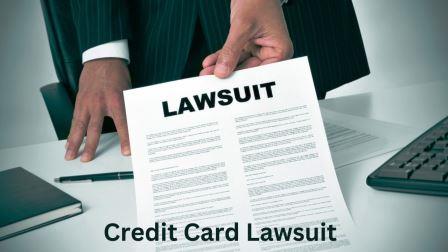Debt is a stressful reality for many Americans. Sometimes, credit card companies resort to lawsuits to recover outstanding balances. If you’re facing a credit card lawsuit, you’re likely wondering about your chances of winning. This blog post delves into the factors that influence the chances of winning a credit card lawsuit, explores strategies to improve your position, and offers alternative solutions to consider.
When Do Credit Card Companies Sue?
Credit card companies typically sue when a significant balance remains unpaid after exhausting collection efforts. Several factors can trigger a lawsuit, including:
- Delinquency: Missing multiple credit card payments can put you at risk of a lawsuit.
- Debt Amount: Larger outstanding balances are more likely to lead to legal action.
- Account Status: Credit card companies might be more aggressive with lawsuits for defaulted accounts (charged-off).
- State Laws: Debt collection laws vary by state, and some offer more protection to consumers.
What Determines Your Chances of Winning a Credit Card Lawsuit?
The chances of winning a credit card lawsuit depend on several factors:
- Validity of the Debt: Challenge the accuracy of the debt amount or verify you are the legal owner of the account.
- Contractual Violations: If the credit card company violated terms of the credit card agreement (e.g., unfair interest rate hikes), you might have a defense.
- Statute of Limitations: Each state has a time limit (statute of limitations) for filing lawsuits on debts.
- Evidence: Having documentation to support your claims (e.g., proof of payments, communication with the creditor) strengthens your case.
- Legal Representation: An experienced lawyer specializing in consumer protection law can significantly improve your chances of success.
Strategies to Improve Your Chances of Winning
Here are some steps you can take to improve your chances of winning a credit card lawsuit:
- Gather Documentation: Collect all credit card statements, payment records, and any communication with the credit card company.
- Understand Your Rights: Research consumer protection laws in your state and the Fair Debt Collection Practices Act (FDCPA) to understand your rights.
- Respond to the Lawsuit: Don’t ignore the lawsuit. File a response with the court outlining your defense.
- Consider Negotiation: Negotiate a settlement with the credit card company before the lawsuit goes to trial.
- Seek Legal Help: Consult with a lawyer experienced in debt collection defense to build a strong case and represent you in court.
Alternatives to a Lawsuit
A lawsuit can be a lengthy and expensive process. Here are some alternative solutions to consider:
- Debt Management Plan: Work with a credit counseling agency to develop a debt management plan that consolidates your debt and reduces your monthly payments.
- Debt Settlement: Negotiate with the credit card company to settle the debt for a lump sum payment that is less than the total amount owed.
- Bankruptcy: In extreme financial hardship, filing for bankruptcy might be a last resort option to discharge credit card debt.
Remember
The chances of winning a credit card lawsuit depend heavily on the specifics of your situation. However, by understanding your rights, gathering evidence, and potentially seeking legal counsel, you can increase your chances of a successful outcome. It’s vital to weigh your options and consider alternatives like debt settlement or negotiation before diving into a lawsuit.
Disclaimer
This blog post is for informational purposes only and does not constitute legal advice. It’s highly recommended to consult with a lawyer specializing in consumer debt collection for specific guidance on your situation.
